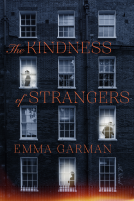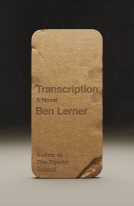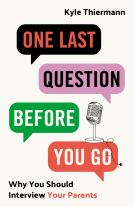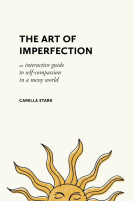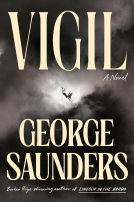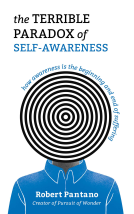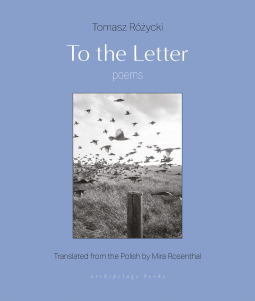
To the Letter
Poems
by Tomasz Rozycki
This title was previously available on NetGalley and is now archived.
Send NetGalley books directly to your Kindle or Kindle app
1
To read on a Kindle or Kindle app, please add kindle@netgalley.com as an approved email address to receive files in your Amazon account. Click here for step-by-step instructions.
2
Also find your Kindle email address within your Amazon account, and enter it here.
Pub Date Jan 09 2024 | Archive Date Nov 12 2023
Talking about this book? Use #TotheLetter #NetGalley. More hashtag tips!
Description
“A truly lyrical longing for the world to be transformed.”—Polish Book Institute
Różycki collects moments of illumination – a cat dashing out of a window and "feral sun" streaking in, a body planting itself in the ground like rhubarb and flowering. He collects and collects, opens a crack, and clutches a shrapnel of epiphany.
Tomasz Różycki's To the Letter follows Lieutenant Anielewicz on the hunt for any clues that might lead 21st century human beings out of a sense of despair. With authoritarianism rising across Eastern Europe, the Lieutenant longs for a secret hero. At first, he suspects some hidden mechanism afoot: fruit tutors him in the ways of color, he drifts out to sea to study the grammar of tides, or he gazes at the sun as it thrums away like a timepiece. In one poem, he admits "this is the story of my confusion," and in the next the Lieutenant is back on the trail. "This lunacy needs a full investigation," he jibes.
He wants to get to the bottom of it all, but he's often bewitched by letters and the trickery of language. Diacritics on Polish words form a "flock of sooty flecks, clinging to letters" and Lieutenant Anielewicz studies the tails, accents, and strokes that twist this script.
While the Lieutenant can't write a coherent code to solve life's mysteries or to fill the absence of a country rent by war, his search for patterns throughout art, philosophy, and literature lead not to despair but to an affirmation of the importance of human love
Advance Praise
"The poems are intimate and wry, philosophically complex, and charged with metaphors for absence and language itself." – Dana Isokawa, Poets & Writers Magazine
"The poems are intimate and wry, philosophically complex, and charged with metaphors for absence and language itself." – Dana Isokawa, Poets & Writers Magazine
Available Editions
| EDITION | Other Format |
| ISBN | 9781953861726 |
| PRICE | $18.00 (USD) |
| PAGES | 144 |
Available on NetGalley
Average rating from 10 members
Featured Reviews
 Kyle C, Reviewer
Kyle C, Reviewer
A collection of love poems, lyrical odes, a puzzle book, a murder-mystery, a post-structuralist playground, a cosmographia—this translation of Tomasz Rozycki's latest poetry book is a deep interrogation of love, of the pernicious effects of modern technology, of the power of poetry, of the grammar of the universe.
Together, the poems form a loose, fragmented narrative about a relationship that has ended (a break-up? a divorce? a death?) and a detective trying to figure out what happened. The conceit of the poems is classically lyrical. The "I" of the poems has been separated from his beloved, always addressed as "you": "Since you're not here, all this duplicity/ is left for me to foster inside of myself", he says. But while the beloved is gone, the beloved is somehow still omnipresent, a present absence that envelops the outside world: "What else can I tell you? You're there, inhabiting/ the realm outside the window—/ the endless space that grows, expands, and keeps extending." In traditional lyric elegy, the poet laments the separation from his beloved (the trope of the exclusus amator) but, in Rozycki's poetry book, the beloved's absence has perversely become its own universe, a degenerate form of Genesis: "I've set up my life/ in this void filled to the brim with your absence". The poet's world is the emptiness created by their separation: "When I lean right, you lean a little more to the left./ The world sits in between". But these are not sappy expositions on love lost; they are a detective thriller: in the background of this romantic tragedy, Lieutenant Anielewicz is trying to piece the events together: "he lays out the bodies according to the sequence of events" and he is collecting "some prints laid down, impressions, then an orange." When he finds the unfinished letters, he can finally understand and put down his autopsy tools.
But the tragedy is more than just an abortive romance; it is an indictment on modernity and its false promise of industrial optimization. In "Third Millennium", the poet rails against a bleak world of mechanized efficiency and violence: "We live in feral times/ infernal machines move through our streets/ emitting sulfur friction smoke/ fire birds fly through the air/ abducting people". Writing with a kind of pastoral naivety, the poet doesn't talk about street-cleaners or drones or iPhones but, using a mythic register, imagines them as the old premodern monsters and dangers—infernal agents, fire birds, magic mirrors. Similarly, in "Lavinia", the poet recasts the wave of refugees crossing the Mediterranean to Italy as a recapitulation of the epics of Odysseus and Aeneas, arriving at the famed shores of Lampedusa and Ithaca, seeking refuge among the people of Latium. Except in this poem, the asylum-seekers sit behind barbed-wire fences and, instead of the ancient Pantheon of Jupiter, Venus and Neptune offering help, the gods and goddesses of this time "keep watch discreetly on their monitors in split display". The only difference between the mythic bronze age and the twenty-first century is that everyone now can watch disasters unfold on a personal device, distractedly toggling between crisis and entertainment. We have Olympic omniscience but are totally powerless, mere voyeurs of ubiquitous catastrophe. A hopeless sense of pessimism pervades these poems. In "Revenge Bank", the poet imagines, for the sake of argument, a utopian future: "Let's say you've won—some future revolution/ and redistribution of goods, with all the oppressed/ eagerly writing laws". But even such an egalitarian project would only be temporary: "Then someone streetside chucks a stone again". Kristallnacht is doomed to repeat itself.
The poet cannot heal or solve these crises. In fact, the poet is something of a pathetic figure. In "The First Crisis of the Reader", the poets of the world eagerly surround a reader, desperate to get his attention. The reader is drunk and tired and picks a book at random, sweating and praising his own ineptitude. He tells the poets that maybe they should give reading a go, a patronizing recommendation that does nothing to assuage their narcissistic jealousies. He ends the night complaining that the air is getting stuffy. The poets obsequiously surround him, trying to get his autograph, asking how he chooses his poems, and they humiliate themselves before an ignoramus. It's a comic inversion of the Romantic vision of the "poet genius" (in some places, Rozycki reminds me more of Charles Simic). So what is the point of this thankless poetry? In its most noble form, only a poem can bring the world together: "So many particles/ of tar are twirling in the air, and only writing/ is capable of stitching them to a story". Just as Lucretius compared the atoms of the universe to the letters of a word, both specially arranged to make a meaningful whole, Rozycki sees the intrinsic connection between language and the world. In "Ż/Ś" (a play on Roland Barthes' S/Z) and "Squiggle", the poet examines the alphabet and its diacritics and tries to understand their meaning, seeing a world of stories projected onto their simple forms. In "The Trail Goes Cold", the poet finds "the shape of an es and zee in trampled grass", an inversion of "Ż/Ś". In all his poems, he is reading the syntax and morphology of the cosmos, looking for letters and order in its turbulent chaos. Letters not only are configured into words to describe the world; they seem to take shape in the material world itself. The poet's vocation is to recognize the various letters and grammars in the world ("the subjects demanding a voice in the sentiments") and give expression to them, bringing the whirring atoms of the universe into some perceptual order.
It's a cryptic collection of poems, poignant, cerebral, a series of conceptualist, rather than confessional, odes.
 Marcia M, Reviewer
Marcia M, Reviewer
I enjoy poetry books as something I can read a little bit at a time. Rozycki's poetry makes me want to keep picking it up. I will keep reading to learn more about how he writes and the way puts words together. Well worth reading. If you're not a poetry lover, you might become one.
Readers who liked this book also liked:
Brian Soonho Yoon
Children's Nonfiction, Crafts & Hobbies
Kyle Thiermann
Biographies & Memoirs, Nonfiction (Adult), Parenting, Families, Relationships
L.M Montgomery
Children's Fiction, Comics, Graphic Novels, Manga, Teens & YA
Todd Irwin
Business, Leadership, Finance, Nonfiction (Adult), Professional & Technical
Robert Pantano
Health, Mind & Body, Religion & Spirituality, Self-Help
